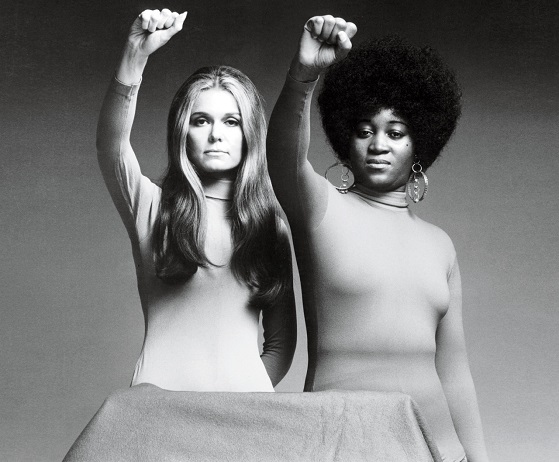What’s All This Fuss About White Privilege?

{source}
Dear White People,
“What’s all this fuss about white privilege?”
You may have asked yourself this question at some point, or you may avoid the subject altogether, like many of my cohorts. Whatever the case, you should know I’m not writing about white privilege because I claim to know more than you.
I’m presenting it simply because I believe some basic exposition is in order, if only to redirect the dialogue and get it back on track. You see, the train of knowledge and change is building steam, and we need all of you game-changers and bright minds on board.
I’ve read a lot of articles about white privilege, written by white peers, and I must admit, most of what I’ve read is either so weak it barely scratches the surface or so off-base that it insults the intelligence of the reader.
Who among us, thinking we might gain some insight into this cultural phenomenon, has not read an article that uses this term in the title, only to find ourselves more confused and outraged than we were when we were first introduced to the term? I can’t count the times it’s happened to me.
Rather than get into the how’s and why’s that lead us writers to twist, whether intentionally or not, the topic of white privilege into some establishment piece, or something that serves our own self-imposed fragility, maybe it is time to step back and start from the beginning on this one.
White privilege, after all, is not a subject explicitly taught in most schools. Though it is implicitly alive and well in most educational systems in the United States, I would wager that you never saw it on a syllabus during your primary education. I know I didn’t.
I was 30 years old the first time I heard the words White Privilege. I was taking a cultural competence course at a liberal arts university in the middle of Nebraska, and my mind was blown wide open when my instructor presented Peggy McIntosh’s “Unpacking the Invisible Knapsack” to our weekend seminar.
Finally, I had an exploratory, if not overly academic, means to identify what I had felt for so long, but could never name.
White Privilege.
If you look up white privilege in Webster’s dictionary, you won’t find it, as far as I can tell. So let’s take it word by word to begin.
White: (adjective) 2. belonging to, or denoting a human group having light colored skin (chiefly used of peoples of European extraction.)
Privilege: (noun) 1. a special right, advantage or immunity granted or available only to a particular person or group of people
We can deduce then, that White Privilege encompasses the special rights, advantages and immunity granted to human groups having light-colored skin. Seems simple enough to understand, but this is where some of us white folk begin to get a little fussy.
This is where some groups of light-skinned humans start calling out the fact that we, too, are discriminated against. That we are not all privileged. Where some of us instinctively assert ‘not all white people’ are afforded special rights or treated better simply by merit of the color of our skin.
This is where some people barrel right past fussy and become hot and bothered, vehemently arguing that white privilege is bullshit, a mental illness derived from self-loathing, an imaginary concept… a farce.
This is where, instead of exploring the concept further, some of us hop right off the train and reroute to the routine track of complacency, complicity and comfort.
This is where I have seen people, middle-class white folk just like me, get hung up on the privilege part of this reality, and start to bemoan their own conceived lack of advantage and immunity.
“I was born poor, I was taunted and teased and discriminated against because of my clothes/hair/class…”
“I have had to face adversity/poverty/oppression…”
“I had to climb my way up the ladder! I had to pull myself up by the bootstraps! I had to overcome my own upbringing/neighborhood/sexism/classism…”
This is where some people even call out overcoming the oppressive forces of feminism (really, white guys?) or the impossible concept referred to as reverse racism as tools that have been used to keep them down.
Finally, in a twisted, yet common example of misunderstanding, I have seen the topic of white privilege turned into an example of “Oh, woe is me, I am forced to live a life of relative ease that I didn’t earn, and it is so oppressive I can’t even breathe!” I call bullshit. Enough is enough, already.
Not only do these run-down way-stations and common landing platforms on the collective train of knowledge hamper our forward movement as a society, they reinforce the very real and unearned privilege that comes from being born with light skin.
And, for those of us who would take the last available train down the colorblind track, tell me… if Stevie Wonder, who really is colorblind, is wise enough to see the racism directed towards others, what would we see if we really lost our sight and depended only on our other senses?
Would you be able to tell the color of a man’s skin simply by listening to how he was spoken of and to? An interesting thought experiment…
Thought experiments can reveal a lot about our perceptions, and, in turn, our reality. While not miraculous or metaphysical, the unpacking of the invisible knapsack that McIntosh presents is an exercise in thought that can help us understand what white privilege is, and how it manifests within in our lives.
If you want to know what all the fuss about white privilege is, or if you feel oppressed by your money or lack thereof, or if you are simply a regular lady like me, who wants to understand the world from multiple perspectives, I encourage you to unpack your knapsack thoroughly sometime.
If you want to get on board and see a thought experiment in action that explores unjustified discrimination based on appearance, I recommend Jane Elliot’s ‘Brown Eye, Blue Eye’ Experiment.
It’s an insight-bringing exercise that not only challenges white privilege, but allows its participants to experience a whole new train of thought in the process.
“White people’s Number One freedom, in the United States of America, is the freedom to be totally ignorant about those who are other than white. We don’t have to learn about those who are other than white. And our Number Two freedom is the freedom to deny that we’re ignorant.” ~ Jane Elliot
If you don’t have the time or inclination to fully unpack, if you are fearful that your comfortable thoughts may be derailed, or if you really do have a train to catch, take just a moment or so to answer the following 10 questions in your head. How many do you answer correct to?
- I can turn on the television or open to the front page of the paper, and see people of my race widely represented.
- I do not have to educate my children to be aware of systemic racism for their own daily physical protection.
- I am never asked to speak for all the people of my racial group.
- I can easily buy posters, postcards, picture books, greeting cards, dolls, toys and children’s magazines featuring people of my race.
- I can choose blemish cover or bandages in ‘flesh’ color and have them more or less match my skin.
- I can be pretty sure that if I ask to talk to the ‘person in charge’, I will be facing a person of my race.
- I can go into a music shop and count on finding the music of my race represented, into a supermarket and find the staple foods which fit with my cultural traditions, into a hairdresser’s shop and find someone who can cut my hair.
- I can take a job with an Affirmative Action employer without having my coworkers on the job suspect that I got it because of my race.
- I can arrange to protect my children most of the time from people who might not like them.
- If I want to, I can be pretty sure of finding a publisher for this piece on white privilege.
Adapted from “White Privilege: Unpacking the Invisible Knapsack”
While I don’t pretend to know more about white privilege than anyone else, I try to pay attention to how it operates. It is silent. It is pervasive. It is an effective tool for oppression, on the one hand, and ignorance on the other… and it has been here for hundreds of years.
It reinforces the systemic inequalities in our society, and it is not going to change or go away any time soon. But as we enter this time of essential change across the globe, it is imperative that it is not ignored.
Dear white people, just like me, I implore you to examine how white privilege works in your life. I beg you to put down your defenses and listen to those who answer the questions above in the opposite way. I wish for all of us to begin to unpack our own baggage, and recognize our privilege for what it is.
It doesn’t take much to start, and we are already all together on this train.
From the observation deck, my perceptions change regularly, reflecting and creating the realities in my world. And from the moment I realized what all the fuss is about white privilege, I’ve tried to learn more.
I’ve expanded my thoughts, my views, my reality to include the fact that there are securities and advantages that I enjoy, simply because of the color of my skin.
I don’t have to worry about my adolescent child being assaulted by Student Resource Officers at school for not putting her cellphone away. I don’t have to worry about my son being called derogatory names by his classmates, simply because of how he looks.
I don’t have to worry that my children will be killed by police while playing at the park. I don’t have to second-guess what I’m wearing if I decide to go for a run, just so I don’t scare anyone. There are a lot of things I don’t have to worry about, simply because I am white. This is my unearned privilege.
No, I didn’t choose to be white, and no, I didn’t create the system that brought and bought and sold human bodies on our continent. No, I didn’t own slaves, and no, I don’t support the racist and bigoted ideals our nation was built on…
… but I know damn well that I still benefit from them.
And that, my dear white people, is what the fuss is all about.
***
{Join us on Facebook, Twitter & Instagram}

